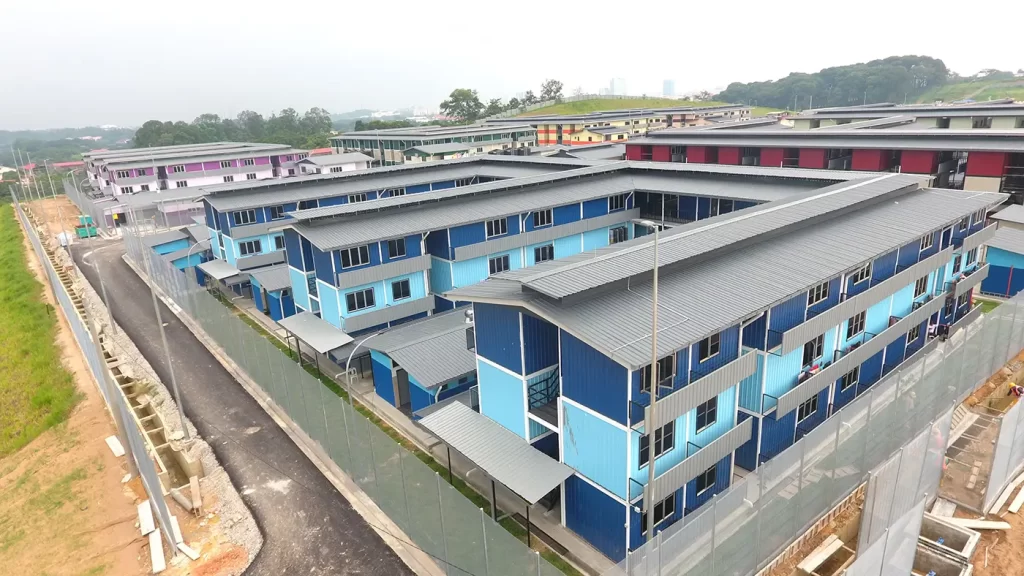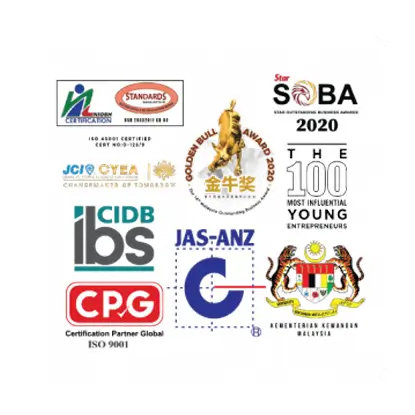On 1 September of this year, the Department of Labour Peninsular Malaysia (JTKSM) announced that it would start to heavily enforce the Minimum Standards of Housing, Accommodation and Employee Facilities Act 1990 (Act 446).
During an official event, Datuk Seri M. Saravanan, Minister of Human Resource stated that the application and compliance of Act 446 is important with standards of the International Labour Organisation (ILO) where local and foreign workers should be provided with basic accommodation which is conducive in many aspects.
“I announced in June that started from Sept 1, we have to enforce Act 446 while any company that does not comply with the act will be liable to a fine of RM50,000 for each offence
Act 446 prescribes the minimum standards of housing and nurseries for workers and their dependants, requires employers allocate land for cultivation & grazing in a place of employment and requires employers to provide health, hospitals, medical & social amenities for its employees.
The act mostly affects construction and manufacturing employees and was created to overcome problems arising from unconducive accommodations; restructure employees’ crowded, dirty & unsafe housing and solve the disruption of quality of living for the local communities physically & socially so that it could contain the spread of infectious diseases.
In a time as uncertain and hazardous as the current Covid-19 pandemic, Act 446 is heavily implemented to control the Covid-19 infection clusters arising from migrant worker accommodations that were poorly regulated.
Datuk Dr. Zainal Ariffin Omar, President of the Malaysian Public Health Physicians Association stated to New Straits Times that many of the current clusters indicated that community transmission had taken place in foreign worker settlements.
“The index cases for Covid-19 clusters involving construction sites originate from foreign workers’ communities and settlements,” he said. “This is bound to happen since low-skilled migrant workers often live in cramped accommodations with poor hygiene and ventilation.”
At one point during the Covid-19 pandemic, Kuala Lumpur registered 460 cases which originated from a construction site in Damanlela while two other clusters were linked to construction workers in Sabah, namely the Plaza and Jalan Kalabakan.
Recently, Top Glove Corp Bhd made the news after 214 cases were reported to have emerged from its worker hostels.
Delving into the amended version of Act 446 in light of the Covid-19 outbreak, changes include aspects pertaining to the minimum standard accommodation and employee amenities; application of acts to all sectors of occupations & regions; employee’s welfare, occupational safety & health as well as the compliance with international standards.
These changes apply to all employers providing employee accommodation throughout Peninsular Malaysia and the Federal Territory of Labuan.
Companies are also required to apply for a Certificate of Accommodation with the JTKSM. The pre-requisites for the certification state that the permanent building used for employee accommodation must have a Certificate of Completion and Compliance (CCC), temporary buildings such as accommodation on construction sites need to obtain a temporary building permit approval for a limited period of time and an approval for the change of use of buildings from non-residential to residential purposes.
The amended act also states that accommodation conditions must be used for its original purpose only and any changes involving the occupancy capacity must be requested for a separate Certification of Accommodation.
The amended act adds that the form of accommodations allowed include:
- All buildings (whether located on one field or more land) developed for use as accommodation including dormitories or all buildings; or
- All buildings built on a construction site for the stay of workers working on constructions sites; or
- All modified units that cover multiple floors or that have been divided –
- Controlled by or operating as a dormitory are managed jointly by one or more employers; or
- Owned by any person other an employer
The building types in the amended act include:
- Apartment or flat or condominium
- Shophouses
- Terrace or twin or bungalow
- Other non-residential buildings modified for accommodation use and have obtained local authorities’ approval in accordance with prescribed standards.
The amended Act 446 also states the criteria for basic amenities which shall not be shared among employees. These include:
- A single bed with a measurement of not less than 1.7 sq m, and if a double-decker bed is provided, the space between the two beds shall not be less than 0.7 m
- A mattress with a minimum thickness of not less than four inches, a pillow and a blanket
- A locked cupboard of not less than 0.35 m length (13.77 inches), 0.35 m width (13.77 inches) and 0.9 m height (35.43 inches), for the safe custody of the employees’ valuables including a passport which may be accessible by the employees at any time.
The size of the floor area for the bedroom and sleeping area must not be less than 0.3 m per employee for dormitories or not less than 3.6 m per employees in places other than dormitories. Every accommodation must have a supply of electricity and water.
Act 446 also states that the minimum requirements for an accommodation or centralized accommodation other than a dormitory must include one rest area; one dining area with chairs and tables; a bedroom; one kitchen area; a bathroom and toilet (whether separated or together) with a ratio of one bathroom and toilet for every six employees; a fan for every rest area, dining area and bedroom; a lamp for every rest area, dining area, bedroom, kitchen area, bathroom and toilet; one area to hang clothes; one first aid kit and a dustbin.
For accommodations or centralized accommodation in the form of a dormitory, the minimum requirements include one rest area; one dining area with chairs and tables; a sleeping area; one kitchen area; a bathroom and toilet (whether separated or together) with a ratio of one bathroom and toilet for every 15 employees; a fan for every rest area, dining area & sleeping area; a lamp for every rest area, dining area, sleeping area, kitchen area, bathroom & toilet; one area to hang clothes; one first aid kit and a dustbin.
The maximum number of employees for an 800 sq ft apartment is six, but the act states that if the size of the apartment or room is larger, it can accommodate more employees.
Once all these requirements are met, employers can request for a Certificate of Accommodation from the Ministry of Human Resources here.
Since Act 446 was amended and enforced on 1 September, as of 6 December, JTKSM had received almost 4,000 applications with 40 percent of them already approved.
According to Saravanan, employers or accommodation providers from the manufacturing, construction, agriculture and service sectors are the ones who have applied the most.
When Act 446 was enforced, the Federation of Malaysian Manufacturers (FMM) did seek for additional time to allow its members to undertake the necessary adjustments to comply with the act due to the current weak economic conditions brought about by the Covid-19 pandemic and the subsequent Movement Control Order (MCO).
Tan Sri Soh Thian Lai, President of FMM described in a statement to New Straits Times that the RM50,000 fine for each offence was too drastic and would severely hamper the business revival initiatives of most industries.
However, he agreed that the amendments to the act were a step in the right direction as it was important to ensure proper and decent housing for the workers.
“Amendments to Act 446, in light of the Covid-19 outbreak is good for the industry in enhancing the living environment that is conducive for all workers including foreign workers and ensuring a healthy and productive workforce which is a critical component to make Malaysia an advance country that adheres to the stipulated ILO conditions.”
For manufacturing, construction, agriculture and service sector employers seeking living quarters customised and built from repurposed shipping containers that are fast, lightweight, durable and a fraction of the cost of traditional brick and mortar materials, they can contact Solid Horizon, a Malaysian manufacturer and supplier of cabins and containers. Visit our website here or email us at solid@solidhorizon.com and call us at 03 3396 3888.

